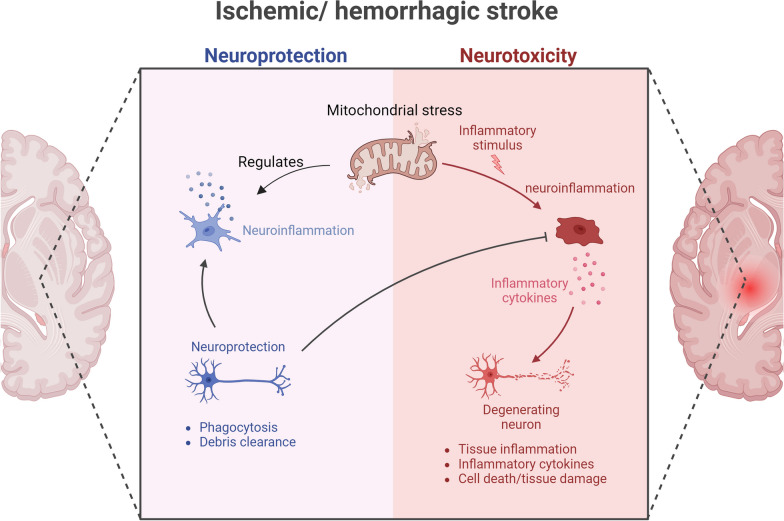Fig. 2.
Cross-talk between mitochondrial stress and neuroinflammation in stroke. Mitochondrial stress serves as an adaptive mechanism aimed at mitigating the stress induced by the import of misfolded proteins, which occurs in response to a stroke. The significance of mitochondrial stress in the pathogenesis of stroke is highlighted by its ability to interact with neuroinflammation. The impact of mitochondrial stress on neuroinflammation varies depending on its severity. Moderate mitochondrial stress can modulate neuroinflammation, enabling cells to better withstand harmful stressors and protect neurons. In contrast, sustained and excessive mitochondrial stress promotes neuroinflammation, leading to the release of pro-inflammatory cytokines, which negatively impacts cellular and tissue integrity

